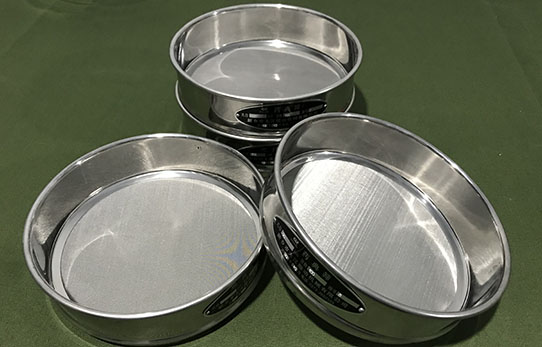Soil Round Sieve
Thursday February-20 2025 10:21:45
Soil round sieve is a device used for soil screening and classification, which is widely used in agriculture, construction, environmental science and other fields. It performs particle size analysis and screening of soil through the vibration of the vibrating screen and the gravity of the material, helping people understand soil properties, evaluate soil quality, and perform soil improvement and engineering design.

How does the soil round sieve
The working principle of Soil round sieve is based on the screening theory and vibration mechanics. When the soil sample enters the screen surface of the circular screen, the circular screen starts to vibrate, causing the soil particles to roll and jump on the screen surface. Smaller particles can pass through the sieve holes and fall into the discharge port below, while larger particles cannot pass through the sieve holes and continue to roll on the screen surface. In this way, soil samples are divided into different levels according to particle size, achieving the purpose of screening.
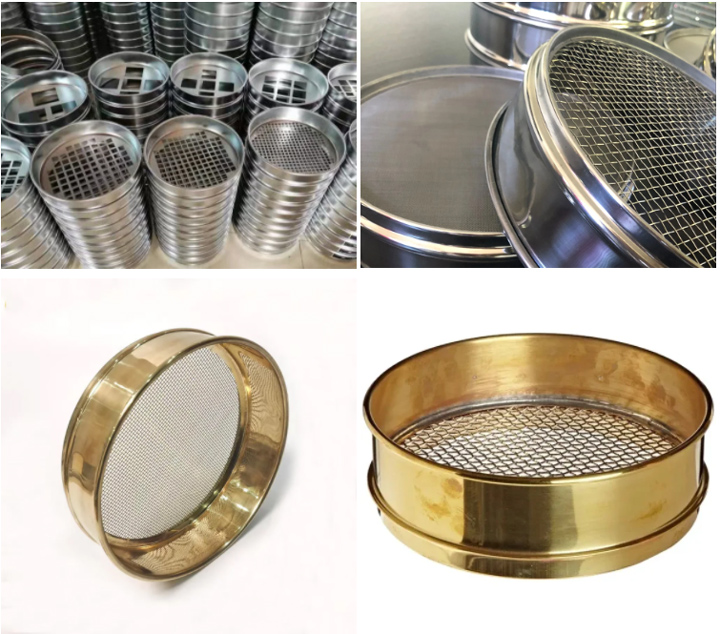
Soil round sieve types
| Classification by material | Stainless steel round soil sieve | Steel round garden sieve | Plastic round soil sieve |
| Image |
 |
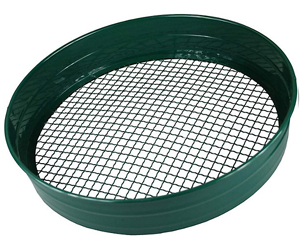 |
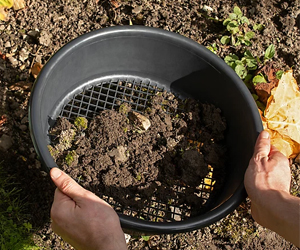 |
| Scope of application | Ideal for making precise soil tillage grades for potting projects | Ideal for removing debris | Designed to sift stones and debris from garden soil |
| Meaning | Critical for removing stones and helping to improve soil before planting | Creates a fine, uniform texture for plant growth | Helps create ideal compost or soil conditions for sowing or other projects |
| Size | 30 cm diameter, 8 cm high | Mesh size is 1/2" 12mm, overall size is 37 cm diameter, 7 cm deep | Sieve diameter is 35 cm, hole diameter is 10 mm |
| Material | Made of stainless steel | Made of steel | Sturdy BPA-free plastic construction |
| Purpose | Great for grading soil and compost | Great for grading soil and compost | Great for any project that requires sifting soil |
Classification by round screen type
Metal wire mesh: It is produced by the national standard GB/T6003.1-1997, the basic size of the mesh is 2.36mm-0.038mm, in line with the international standard ISO3310-1: 1990 R20/3, R20, R40/3 series, screen mesh Materials are brass, tin bronze, stainless steel.
Metal perforated plate: The national standard GB/T6003.2-1997 is adopted, and it conforms to the international standard ISO3310-2: 1990R20/3, R20, R40/3 series. There are two kinds of meshes, round holes and square holes, from 0.2 to several hundred millimeters.
Electroforming mesh: mainly used in high-precision occasions, each mesh can be within the average error range.
Is it worth soil round sieve?
One of the advantages of Soil round sieve is that it can quickly and accurately determine the particle content of different particle sizes in the soil. By installing screen holes of different specifications on the circular screen, screening of different particle size ranges can be carried out as needed. This is very important in fields such as soil engineering design, soil improvement and agricultural production. By understanding the particle content of different particle sizes in the soil, indicators such as soil drainage, aeration, water retention, and fertility can be evaluated, providing a basis for soil management and farmland management.
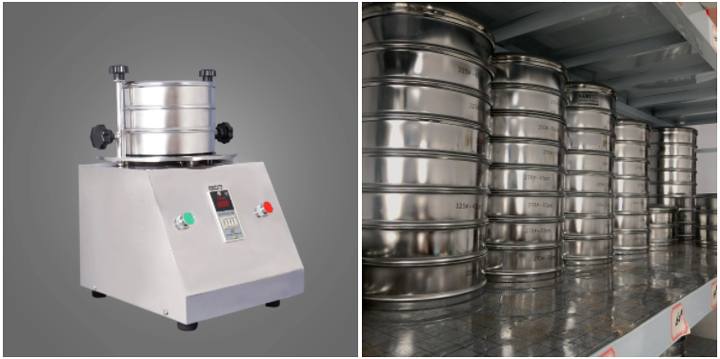
Another advantage is that the soil round sieve is easy to operate and efficient. Just put the soil sample into the feed port of the circular sieve and turn on the vibration device to start screening. Under the action of vibration force, the screening speed of soil particles is accelerated, which greatly improves work efficiency. In addition, the soil round sieve also has the characteristics of adjustable vibration force and mesh size, which can be adjusted as needed to meet the sieving requirements of different soil samples.
What is a soil round sieve used for?
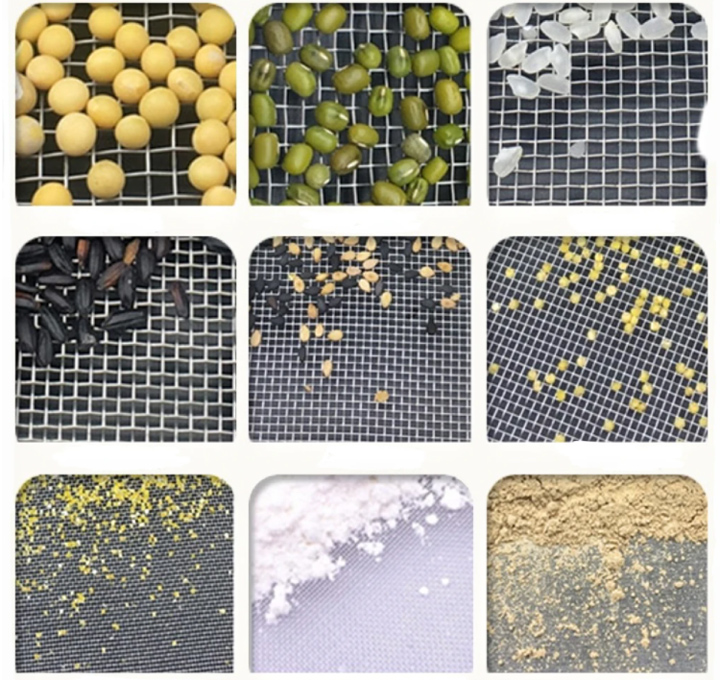
Agricultural field: used for soil quality assessment, farmland management and crop growth research. By screening and grading soil samples, we can understand the particle content of different particle sizes in the soil, evaluate soil fertility, drainage, aeration and other indicators, and guide agricultural production and soil improvement.
Construction engineering: used for soil engineering design and foundation engineering construction. By screening soil samples, the particle distribution and particle size in the soil can be determined, providing a basis for the design and construction of basic projects and ensuring the stability and safety of the project.
Environmental Science: For soil pollution assessment and environmental monitoring. By screening and classifying soil samples, the distribution of pollutants in the soil can be analyzed, the degree of soil pollution can be assessed, and data support can be provided for environmental protection and pollution control.
Soil Research and Laboratory Analysis: For scientific research and laboratory analysis. By sieving soil samples, soil particles of different sizes can be obtained for particle analysis, physical property testing and chemical composition analysis, providing sample preparation and data support for soil research and laboratory analysis.
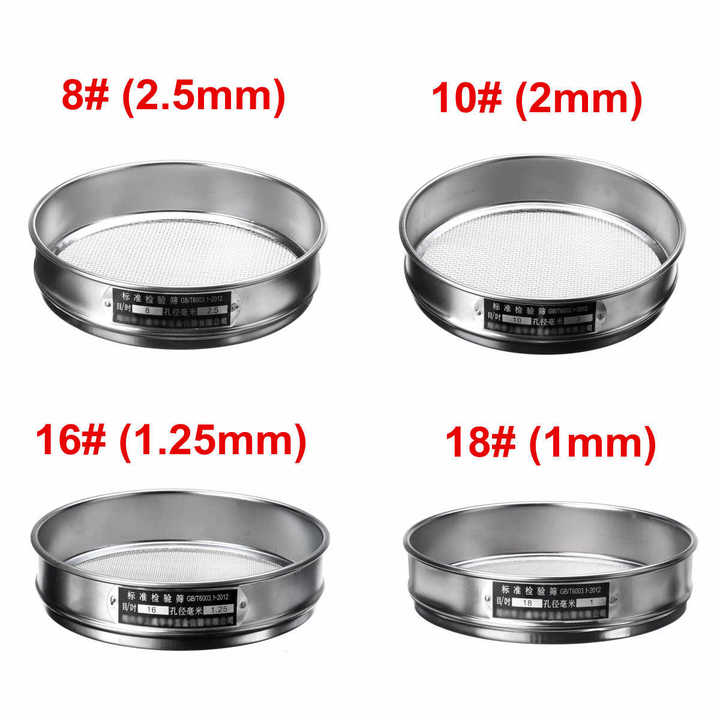
To sum up, soil round sieve is an important soil analysis tool, which realizes soil particle size analysis and screening through the vibration of the vibrating screen and the gravity of the material. It plays an important role in agriculture, construction, environmental science and other fields, providing effective technical support for soil quality assessment, soil improvement and engineering design.
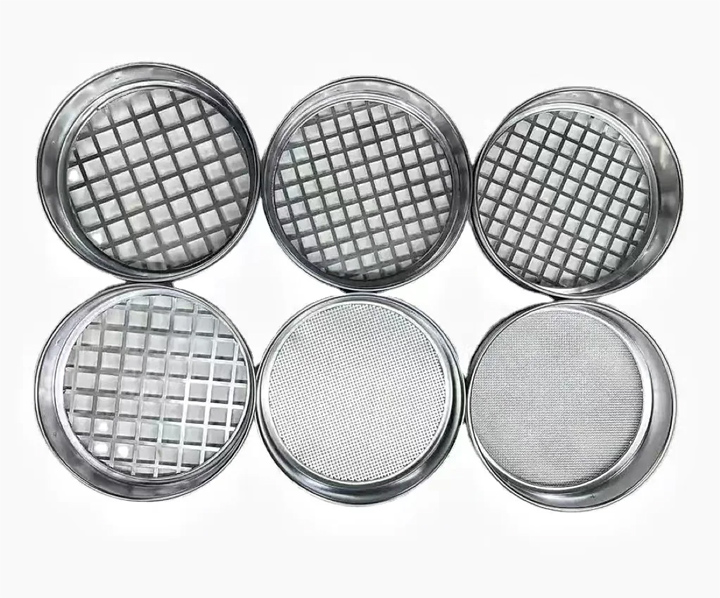
What is the size of a soil round sieve?
|
Mesh number (mesh) |
Aperture |
Mesh number (mesh) |
Aperture |
Mesh number (mesh) |
Aperture |
Mesh number (mesh) |
Aperture |
| 5 | 4mm | 40 | 0.45mm | 180 | 88μm | 325 | 34μm |
| 6 | 3.2mm | 50 | 0.355mm | 190 | 80μm | 360 | 40μm |
| 8 | 2.5mm | 60 | 0.3mm | 200 | 76μm | 400 | 38.5μm |
| 10 | 2mm | 70 | 0.25mm | 220 | 70μm | 500 | 30.8μm |
| 12 | 1.6mm | 80 | 0.2mm | 240 | 65μm | 600 | 25μm |
| 14 | 1.43mm | 100 | 0.15mm | 250 | 63μm | 800 | 15μm |
| 16 | 1.25mm | 120 | 0.125mm | 260 | 57μm | 900 | 10μm |
| 18 | 1mm | 140 | 0.105mm | 280 | 55μm | 1000 | 8μm |
| 20 | 0.9mm | 150 | 0.1mm | 300 | 50μm | 1200 | 5μm |
| 30 | 0.6mm | 160 | 97μm | 320 | 48μm | Bottom cover | Nonporous |
Soil Round Sieve for sale
If you're looking for a soil round sieve for sale, there are several options available depending on your specific needs, such as size, material, and mesh specifications. Dahan machine Offers a variety of soil sieves in different sizes and mesh configurations. We Provides a variety of sieves for soil analysis, including round sieves.
If you have specific requirements, you might consider making your own sieve using mesh and a frame. This can be a cost-effective solution if you need a custom size or mesh.
Key Considerations When Purchasing:
1、Mesh Size: Ensure the sieve has the appropriate mesh size for your soil analysis needs.
2、Diameter: Choose a diameter that suits the volume of soil you typically work with.
3、Material: Stainless steel is durable and resistant to corrosion, while brass or other materials might be suitable for specific applications.
4、Frame Material: Typically made of metal or durable plastic, depending on the intended use.
Example Products:8-inch Diameter Soil Sieve: Commonly used for small-scale soil testing; 12-inch Diameter Soil Sieve: Suitable for larger volumes of soil;Stainless Steel Sieve: Durable and resistant to rust, ideal for frequent use.
Make sure to check the product specifications and reviews to ensure the sieve meets your requirements. If you have specific needs, such as a particular mesh size or material, you may need to contact a specialized supplier.

